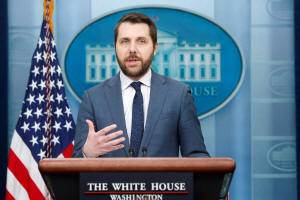|
"This bedrock idea that the United States has met all of its
financial obligations for its existence as a country isn't
something that anybody should be using as a bargaining chip.
It's not a negotiable item," Deese said.
He said the economic consequences of questioning that principle
could be "quite severe" and could allow adversaries to claim the
"full faith and credit" of the United States had been weakened.
The U.S. government hit its $31.4 trillion debt ceiling last
month, prompting the Treasury Department to warn that it may not
be able to stave off default past early June.
Biden, a Democrat, last week met with Republican U.S. House of
Representatives Speaker Kevin McCarthy to discuss a path
forward.
The White House has said Biden will discuss federal spending
cuts with Republicans, but only after the debt ceiling is
lifted, while McCarthy has said Republicans will only lift the
ceiling if Biden agrees to spending cuts.
Deese said Biden would express an "openness and, in fact, an
eagerness to have a real serious conversation about the fiscal
and economic priorities of the country" and potential ways to
lower costs for families while continuing to invest and create
more manufacturing jobs.
(Reporting by Jeff Mason and Andrea Shalal; Editing by Chris
Reese and Jonathan Oatis)
[© 2023 Thomson Reuters. All rights
reserved.] Copyright 2022 Reuters. All rights reserved. This material may not be published,
broadcast, rewritten or redistributed.
Thompson Reuters is solely responsible for this content.

|
|




